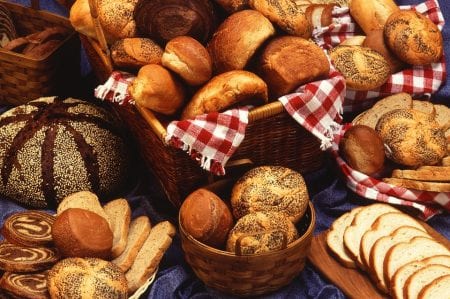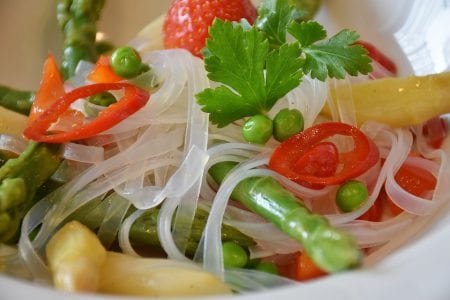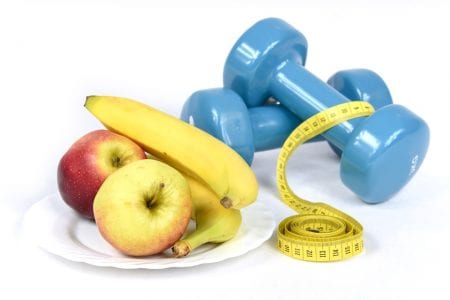 Image credit: PublicDomainImages
Image credit: PublicDomainImages
Among the adherents of healthy lifestyles and beginners in the world of healthy nutrition carbohydrates have not the best reputation. This is because the mass media regularly talk about the dangers of consuming large amounts of carbohydrates for the figure and well-being. But the truth here is that not all carbohydrates are created equal.
Nutritionists remind: the right food is, first of all, a varied diet rich in proteins and healthy fats and carbohydrates. Carbohydrates in this case will help your body to save energy potential, stabilize metabolism and normalize the work of the gastrointestinal tract. In this material – five myths about carbohydrates, in which it’s time to stop believing.
Myth 1. Low-carbohydrate foods are always better
“Reduced carbohydrate content” is, most often, a marketing move that allows the manufacturer to increase the consumer audience. In other words, the problem here is that when buying a product with a similar statement on the package, you can not guarantee that the amount of carbohydrates in it will really be lower.
Are you following a low-carb diet? “Such a diet requires that the intake of carbohydrates be ultra-low, about 20 grams per day. It is this amount that causes ketosis – a condition where the body uses fat as a source of energy, “biologist Jayde Lovell said in an interview with Medical Daily. “At the same time, many foods high in protein and low in carbohydrates, in particular, cocktails and bars, contain more than 20 grams.”
Myth 2. Bread, cereals and pasta are necessary for the body
Our body really needs carbohydrates to survive. However, many people believe that carbohydrates are only bread, cereals and pasta, whereas in fact the list is much more diverse. So, carbohydrates are also fruits and vegetables (fructose, fiber), cream and milk (lactose), beer and kvass (maltose).
It can not be said that the body needs certain products, but it really needs carbohydrates. That’s why they should be present in the diet on a regular basis, however, preference should be given to whole grains and fresh vegetables and fruits, which are processed longer by the intestines and, as a result, they cope better with hunger.
Myth 3. Low-carb diet is a refusal of bread and baking
In fact, a low-carbohydrate diet involves rejecting different types of carbohydrates, so here you have to say goodbye to many of your favorite foods. Is the game worth the candle? The question is debatable. First, the lack of a menu of fiber, which is mostly found in vegetables and cereals, will lead to problems with digestion. Secondly, such nutrition with an emphasis on proteins can trigger a jump in “bad” cholesterol, which also does not work for you.
That is why nutritionists never tire of saying that the best diet is a balanced diet, physical activity and a healthy sleep. And, of course, do not forget about studying the label. Try to avoid products with flavors and artificial sweeteners in the composition, which can strengthen the craving for sugar.

Image credit: RitaE
Myth 4. Carbohydrates are harmful to the body
There are two types of carbohydrates – simple and complex. Simple carbohydrates include sweets, soda and baked goods, and complex carbohydrates – whole grains, fruits and legumes. Complex carbohydrates provide our body with the fibers that are necessary for normal operation of the stomach and intestines, as well as for “feeding up” the brain throughout the day. Unlike complex carbohydrates, simple carbohydrates provoke a jump in blood sugar, which is fraught with drowsiness and loss of concentration.
Other complex carbohydrates that you like – potatoes, whole wheat bread, rice, high-fiber flakes, whole-grain pasta. Who said that HLS does not provide opportunities for gastronomic experiments?
Myth 5. After training carbohydrates should be avoided
Correct snack after intensive training is the guarantee of effectiveness of the latter. And, as fitness trainers say, no matter what day of the day you prefer to practice. It is important to ensure that it contains a healthy dose of protein, which helps to restore muscle tissue, and carbohydrates that will replenish energy reserves.

Image credit: PhotoMIX-Company
As a rule, after 90 minutes of physical activity, the human body exhausts the reserve of glycogen (a carbohydrate in the form of which our body stores glucose), so that without a carbohydrate component, the snack will be difficult to call full. Chris Weiler, a sports nutrition expert and author of The 3/4 Rule – How to Eat as An Athlete, admits that a banana or a sweet pear is definitely one of the best options for both beginners and professional athletes.
